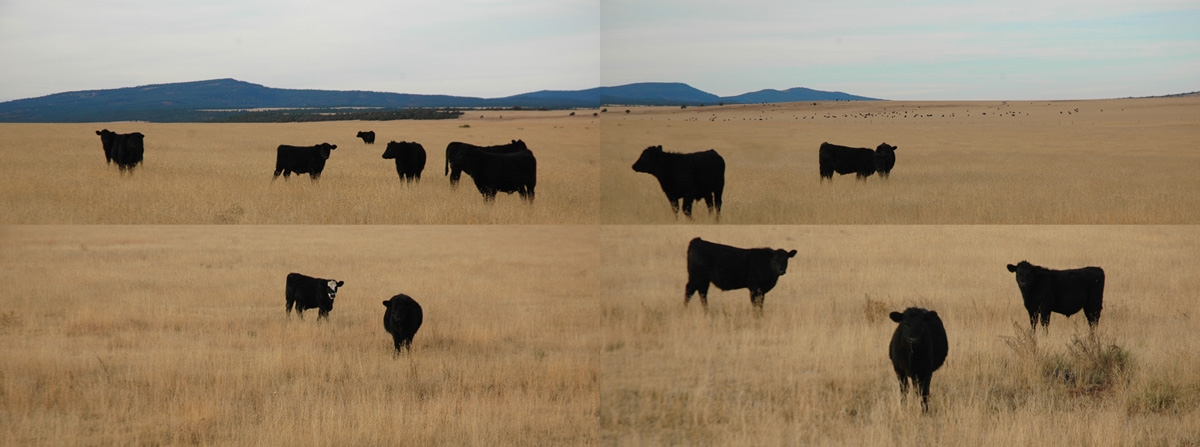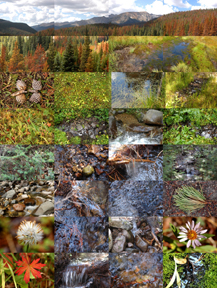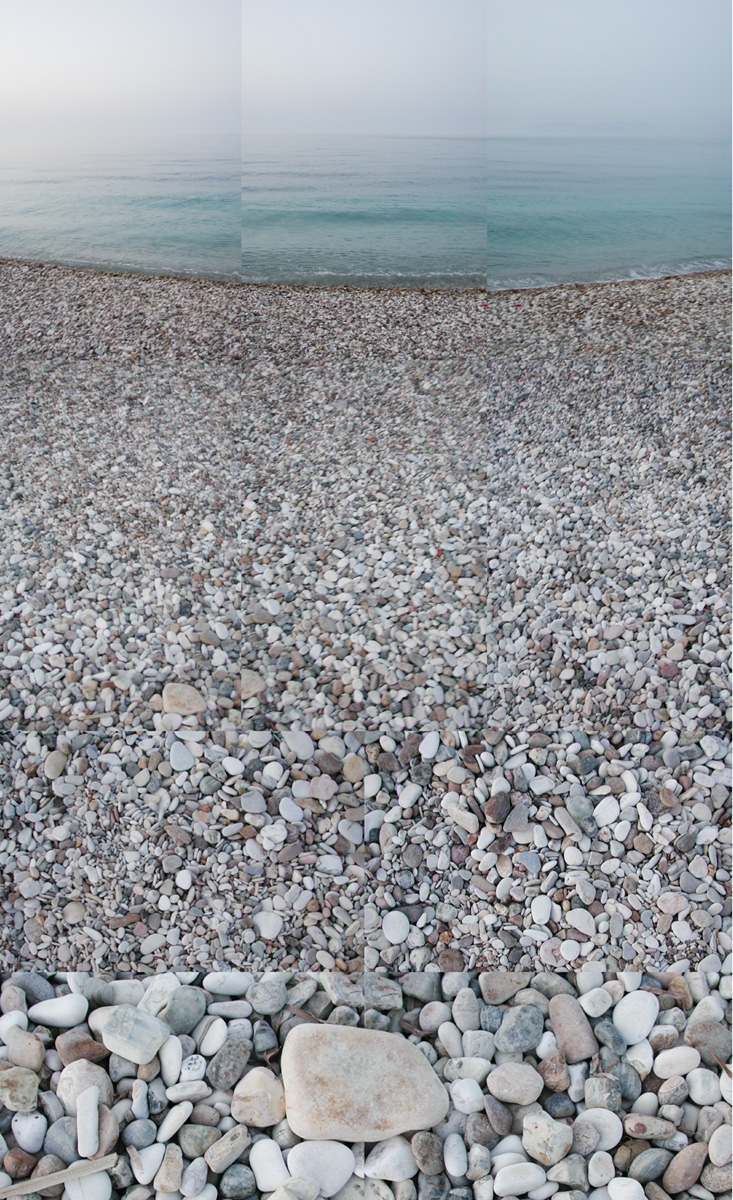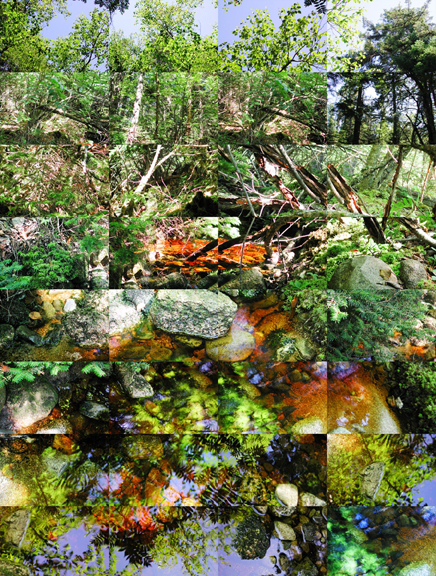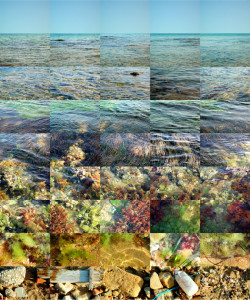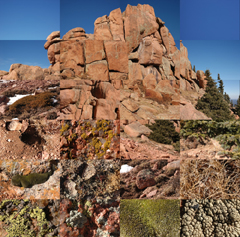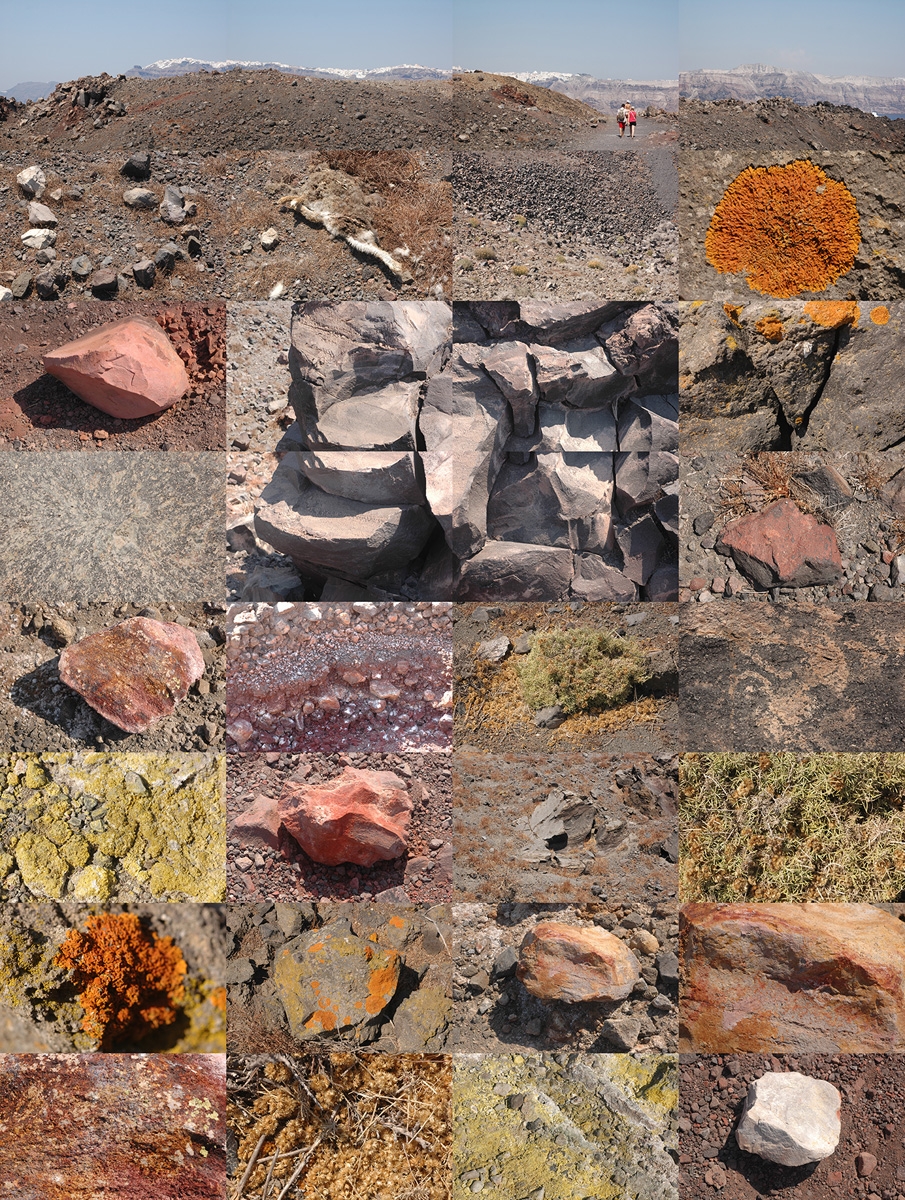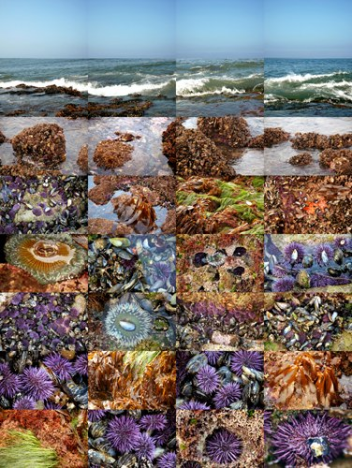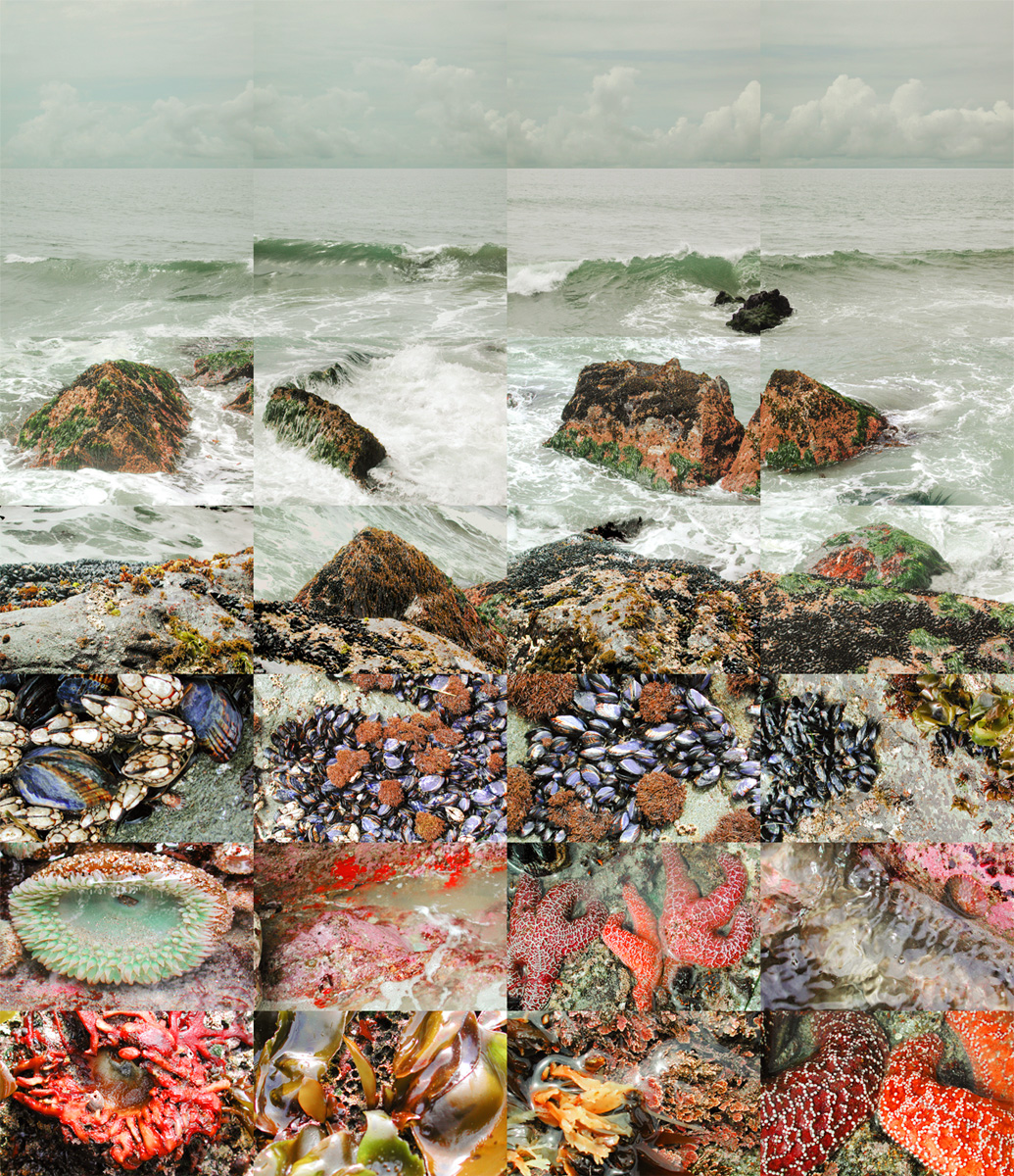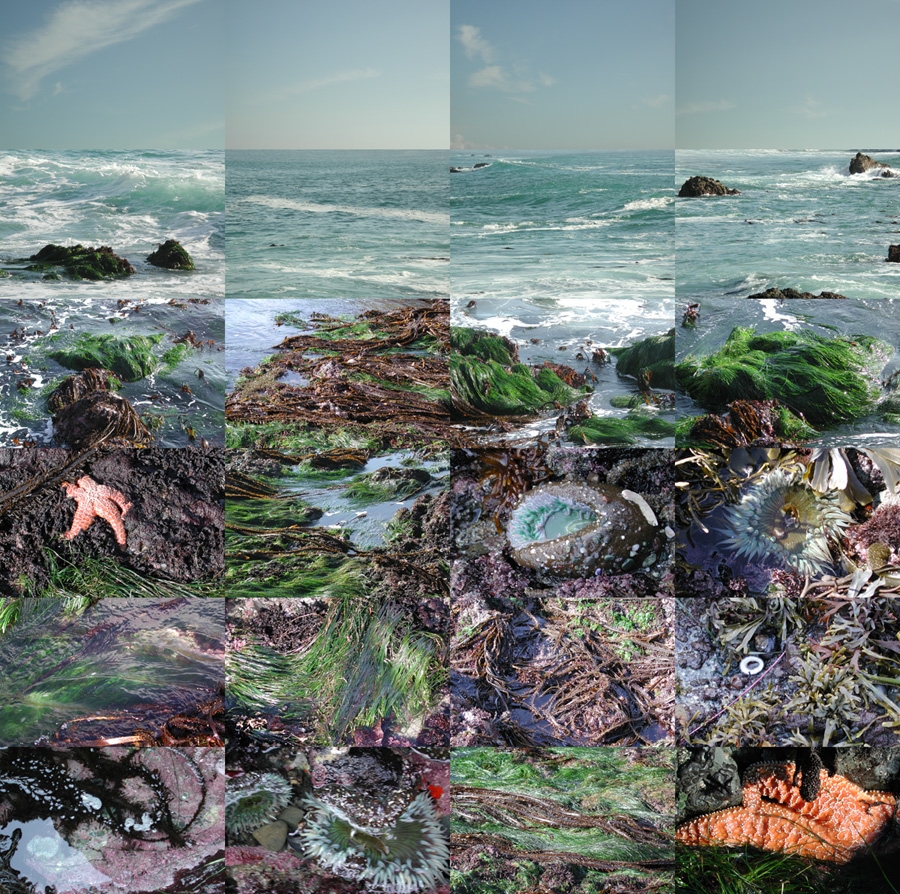
North of Pfeiffer Beach, Big Sur, California, 2001 by Matthew Chase-Daniel
“Has your husband licked your anus recently?”
“Excuse me?” Olivia withdraws her feet from the stirrups and sits up. The paper sheet covering her from the abdomen down flutters to the floor and exposes any mystery about her Dr. Rattray might have speculated from his previously limited view.
“There’s a fungal growth irritating your hemorrhoids, a type of yeast commonly seen in oral thrush—that’s in the mouth.”
She can’t decide which is most devastating: the frankness with which this unfamiliar male doctor just asked an amazingly personal question, the way he blithely informed her she has hemorrhoids without telling her directly, or that his hand is still touching her backside, which is coated with lubricant and burning something awful. Deducing that matters can’t get worse, she presses her forearms against the examining table, politely lifts her rear off the doctor’s hand, and slides to the floor in immediate pursuit of her underwear and jeans.
Dr. Rattray goes to the sink to wash his hands and says he’ll return in a few minutes to review some details. Seeing she is safely away from public view, he opens the door to leave but then closes it and goes to the cabinet above the sink, where he retrieves a sanitary wipe and drying cloth.
“You might want to use these before you put everything back on,” he says, winking.
Olivia smiles from behind the protective covering of a chair; she can’t access her clothes without crossing to the other side of the room, and she’s exposed herself enough for one day. At work this morning when she confessed to her boss she had exaggerated on her CV about experience with social networking platforms, at lunch when her friend Molly asked why she hadn’t RSVP’d to the baby shower invitation yet, and now, the annual. If only she had waited until her regular doctor returned from vacation. No rush—although the burning and itching have become unbearable, to the point she can hardly sit through a movie at the cinema. Trenton, whose job if not life revolves around the cinema, has found this most worrying, explaining to Olivia how bad it looks when his own wife can’t sit through a screening of his film.
Yeah, well you see how it feels to have inflamed veins in your ass.
Nobody gets hemorrhoids at 34. That’s a disease for the middle-aged, and she has at least six more years to go. She’s entitled to those years and will not have some substitute doctor use words like “anus” on her. Olivia silently prepares a lecture while she dresses, but Doctor Rattray knocks on the door before she can come up with a civilized term for her anatomy.
“I apologize for the wait. Network’s all clogged up.”
“I’m sorry?”
“I phoned your prescription to the pharmacy. It will be ready tomorrow.”
“Prescription?”
Dr. Rattray holds his clipboard in the air and waves for her to sit with him at his desk. He plucks a pen from behind his ear and points it at her. “You, Mrs. Goodman, are to follow my orders for the next two weeks and then check in with your regular doctor.”
Who is this man Dr. Wein has allowed as a replacement? Olivia isn’t especially fond of Dr. Wein, but at least he never shocked her with information about her health or talked about it in such an offhand and vulgar way.
“What, exactly, is the problem, Dr. Rattray?”
As though he has been waiting all day for such a question, an opportunity not only to show off his knowledge of the medical world’s underbelly but also to showcase a hidden talent for exciting conversation, he claps his hands once and plunges into a monologue that passes right over Olivia.
“So it’s not your fault, Mrs. Goodman, and you will be able to resume all normal activities once it’s treated. In theory it has nothing to do with whether or not your husband licks your anus. But in practice, moisture makes yeast a very productive little fungus.” The doctor wags his index finger.
“Have you checked your husband for oral thrush? It’s quite easy to identify, usually a white patch on the top of the tongue that looks like hair—”
“Please, just tell me how to get rid of it. I’ll be happy to follow your instructions.”
“Get rid of it?”
“Yes, this…problem I seem to have developed.”
“Oh there’s no getting rid of hemorrhoids, Mrs. Goodman. They’re constricted veins that require treatment, sometimes even surgery, but I assure you they’re manageable. Did you know fifty-percent of people over the age of forty develop hemorrhoids?”
Olivia stares harder at the ground each time the doctor says the offensive word. It sounds like something German lovers might yell at each other during quarrels.
An hour after leaving the doctor’s office, she is stuck in traffic. According to the radio announcer, a five-car pile-up has narrowed the highway from three lanes to one. The occasional car zooms along the soft-shoulder only to encounter a roadblock of pylons up ahead, where a police officer gleefully tickets the deviant motorists and holds his hand up to assist them back into the nonexistent flow.
Summer traffic jams in Boston are unbearable; the normal level of driver aggression is amplified by the wasted time and dense humidity, and anybody who has been in this situation before knows to be on guard for cars to rev and force into the first available opening.
“Is it ever hot on this late July afternoon! If you haven’t gone to the new Toscanini’s in Cambridge yet, this is your chance. My personal favorite new flavor is Cherry Chocolate Chunk. Think about that while you’re stuck in the throbbing heat for the next twenty minutes, and then meet me at Toscanini’s at seven pm and sign up to win a prize. That’s right, I said prize!”
Olivia leans forward in her seat and scoots her lower body back. Her legs are stiff and her rump is on fire. It’s really happening: Her body is beginning to malfunction. How utterly embarrassing. She doesn’t know if she can tell Trenton. But she has to. Apparently he might have oral thrush, although how she contracted that in her … it doesn’t make sense.
A car horn blares behind Olivia’s tree frog green hatchback and a gravelly Irish voice accuses her of holding everyone up. Sure enough, she has fallen four lengths behind the car in front.
A news helicopter circles overhead and Olivia wonders what the traffic jam looks like from an aerial perspective. Maybe it looks like a big swollen vein.
Trenton has set the dinner table and placed a single bird of paradise in a translucent red vase at the center. Small bowls of tapas fan out around the vase.
“You’re a darling for making diner,” she says, scooping a handful of tortilla chips before leaning toward Trenton for a kiss. She stops mid-lean, stuffs her mouth with chips, looks at the table again. “And my favorite wine, too!”
Trenton appears oblivious to the fact that his wife just dodged a kiss, and proceeds to explain the various tapas he spent the afternoon preparing.
“These little guys,” he says, pointing to thick finger-sized sausages marinated in a burgundy sauce, “are called ojales—or, buttonholes.”
“These,” he says, lifting a bowl of black olives in a cilantro paste, “are perdigones, or buckshots. Don’t they smell divine?”
He explains the other five dishes, but the whole time Olivia can focus on one thing only: his mouth. She’s never noticed until now that it barely moves when he speaks. In fact Trenton mumbles a lot of his words, streams them together and occasionally lisps. She remembers, vaguely, noticing the lisp when they met nine years go, but she was too polite to say anything so probably she’s just gotten used to it by now.
When his tongue finally does expose itself, Trenton covers it with the back of his hand to staunch a yawn. “Everything okay, Liv? Is the food grossing you out?”
Olivia sucks back her glass of wine. She needs courage to ask him about his oral thrush. “Do you—have you ever—did you know that….”
“What’s wrong? Tell me what’s wrong.” Trenton pushes the tapas aside and reaches across the table. “Sweetheart?”
She drops her head and stares at the tops of her thighs. “Just give me a minute.”
He stands and walks around to his wife. He hugs her against his stomach and rubs her shoulder blades. “Are you anxious about the screening tonight? You don’t have to come. I know it’s hard for you to stay awake after working all day.”
She whimpers into his stomach, his pleasantly soft yet flat stomach, and wonders if this will be the next thing on her to go. Maybe she’ll wake up tomorrow morning with a pouch that can’t be tucked behind the waist of her jeans no matter what she does. Or worse, a muffin top. She pats her stomach to check if this isn’t already the case.
Trenton pounces on the gesture. “You’re pregnant? Are you really? That’s wonderful news, Liv! Oh my God, I’m so happy I could—”
“I have hemorrhoids!”
When he releases her and steps back, she wonders if he’ll ever look at her the same again. Of all the vile things she’s ever said to her husband, this wins the blue ribbon.
She pours herself another glass of wine. “I’m sorry, I didn’t mean to yell. The doctor gave me a pamphlet, if you care to know more.”
A smile spreads across his face like a contagion—into his eyes, along the lines of his forehead, even the tips of his ears. He hugs Olivia to him once again and says, “Welcome to the club, darling.”
~
The next day Olivia leaves work early. After extensive research on the items Dr. Rattray prescribed for her, she has decided they are non-hazardous and easy to hide from Trenton. He must hide his products, after all, since she’s never seen any around the bathroom. Maybe he’s embarrassed, too. Her research has also taught her a coded vocabulary she can use with the pharmacist. Surely she isn’t the first person to fill a prescription of this nature, but she can’t risk exposing her horrifying secret.
After skillfully maneuvering her hatchback between two king cab pickup trucks with muddy off-road tires, she reaches into her purse for the CD she made during lunch break: A Free Guided Meditation for the Overburdened. She inserts the CD, presses “play,” and listens as a waterfall and gentle wind fill the car. This is kind of nice, she thinks.
A soothing male voice eventually fades in and encourages her to close her eyes and relax. “You are preparing for your spiritual enema,” the voice says.
She ejects the CD and snaps it in two.
The pharmacist tells her it will take ten minutes to prepare her order, so she walks up and down the store aisles in search of the non-prescription items she learned about online: witch hazel, fiber supplement, and stool softener. According to her research, these aides can help keep both her exterior and interior happy. She also visits the cosmetics section—her first time since adolescence, when wearing makeup had everything to do with fitting in and nothing to do with aesthetics. Other than a light sweep of clear lip-gloss, she presents herself to the world the way nature made her. And why shouldn’t she? Her skin is clear, her features are symmetrical, and she’s in her prime. Or was. She picks up a tester tube of Cover Girl lipstick and rubs the nub of dark pink onto her index finger. Next, she rubs her index finger across her lips and puckers them in front of the wall mirror. She moves down the aisle to the eye shadows and liners, then concealers, then blushes, and by the time she’s called to the prescription counter she looks like a mom whose little girl has played beauty shop on her.
The pharmacist smiles too generously as he rings up her purchases. “Tucks is on sale this week, if you’d prefer.”
“Tucks?”
“Generic witch hazel’s fine, but you’ll get more medicated pads for your money if you buy Tucks.”
She ignores the suggestion and promptly exchanges 20 dollars for her products.
Outside the store, she takes a moment to ensure she hasn’t left anything behind like her wallet or car keys. Two teenage boys lean against the brick exterior, smoking sloppily rolled cigarettes. They are overdressed for such a blistering summer day, sweating yellow through their long soccer jerseys. With Olivia as their audience, they become animated and talk loudly at each other. One of the boys produces a matchbook from his back pocket. He tears a match free and strikes it against the flint strip across the small square of cardboard, then holds up the lit match like he’s just performed a magic trick. The other boy sticks his thumb and index finger into his mouth and then presses his fingers around the flame. He grins at Olivia, but she is already halfway to her car.
Tonight she will ask Trenton to show her his tongue. As soon as he gets home, before he has removed his loafers, Olivia will know the secrets of his mouth. This is ridiculous! Why is she afraid to ask? They’ve shared so many things over the years, and he knows she now has hemorrhoids and a yeast infection. She just needs to take it one step further and alert him to the possibility he might have contributed to the second part of her ailment. Oral thrush can be caused by a variety of culprits—food-born bacteria, a tooth infection, aging—so this is a mystery to solve together.
Since Trenton isn’t due home for another hour, Olivia decides to familiarize herself with her cornucopia of treatments. As she lays the products out on the bathroom counter, however, she realizes she doesn’t know which to use first—the witch hazel pads or the anti-fungal cream. And how, exactly, does one “apply” anti-fungal cream? Had she not been in a rush to leave the pharmacy, she could have received a free consultation. The third product, psyllium caplets, is straightforward, so she starts here: Take one caplet with a glass of water. Next, she reads the directions on the stool softener bottle: Take one to two softgels at the first sign of hard stool. Ew. Finally, there is no getting around it; she’s left with the witch hazel pads and the anti-fungal cream. The products sit side by side on the counter like a pair of schoolyard bullies. She decides to apply the cream first, since witch hazel is merely a soothing agent. The anti-fungal leaflet instructs her to:
“Make sure infected area and hands are clean. Insert plastic applicator into tube and fill with cream until dotted line. From a standing position, bend forward at waist. Use one hand to stretch skin around anus. Use other hand to guide applicator to anus and gently insert tip. Do not force. With index finger, push down on top of applicator until all cream has been dispensed. Gently remove and rinse in warm water for reuse. Store in cool, dry place. See numbered illustration on back.”
Olivia tosses the cream into the wastebasket beside the sink, sits on the edge of the bathtub, and cries. She weeps until Trenton comes home, blaming him for everything—the hemorrhoids, the yeast infection, the muffin top she will one day have, her indecision about what to do with her life, her stupid, aging body. By the time he comes to her, she has concluded their marriage is failing.
“What do you mean, Liv?” He appears to be suppressing a laugh—an actual laugh!
She wipes her face dry with a hand towel and confronts her husband. “You lied to me. That’s why. And you gave me a yeast infection in my ass! How is that even possible? Do you have any idea how degraded I feel?”
Trenton swishes his mouth from side to side for a moment and then says, “I have never lied to you. You’re acting a little mad right now.”
“Why didn’t you tell me about your hemorrhoids?”
“I didn’t think it was something you’d favor knowing.”
“What about your oral thrush?”
“My what?”
She squeezes her hand around Trenton’s chin. “Open.”
“Wawt?” He tries to wriggle free but she has him locked in place.
“Open your mouth and show me your tongue.” She feels an unexpected rush of bravery—a psychic liberation at having issued a command with such certainty.
Trenton’s nostrils flare with confusion, but he does as he is told. She peers into his mouth, maneuvers his head from one side to the other, shines a mini flashlight inside, releases her grip.
“You don’t have a hairy tongue,” she says.
“A hairy what?”
“A hairy tongue. Oral thrush. The reason I have an infection.”
He looks around the bathroom with intent, and then lifts his hand above his head as though to touch the light bulb that has just flashed in his mind. He turns this way and that, gathering her scented bath beads, shower gels, and beauty bars in his arms. She almost shrieks when he drops everything into the wastebasket.
“What did you do that for?”
“All those fake chemicals,” he says, hugging her to him and kissing the top of her head, “are hemorrhoid irritants. Sometimes it’s that simple. Besides, only teenage girls walk around smelling like flowers all the time.”
She slips a hand between herself and Trenton and touches her belly, which, thank God, is still neatly behind the waist of her jeans.
April L. Ford is a Montréal, Québec native. She is in her third semester at Queens University of Charlotte, and she is happily employed as a French lecturer at State University of New York, Oneonta. Her short story “Layla” appeared in the spring 2010 issue of Short Story magazine, and “Isabelle’s Haunting” will appear in the upcoming issue of The Battered Suitcase.
Read our interview with April here.
